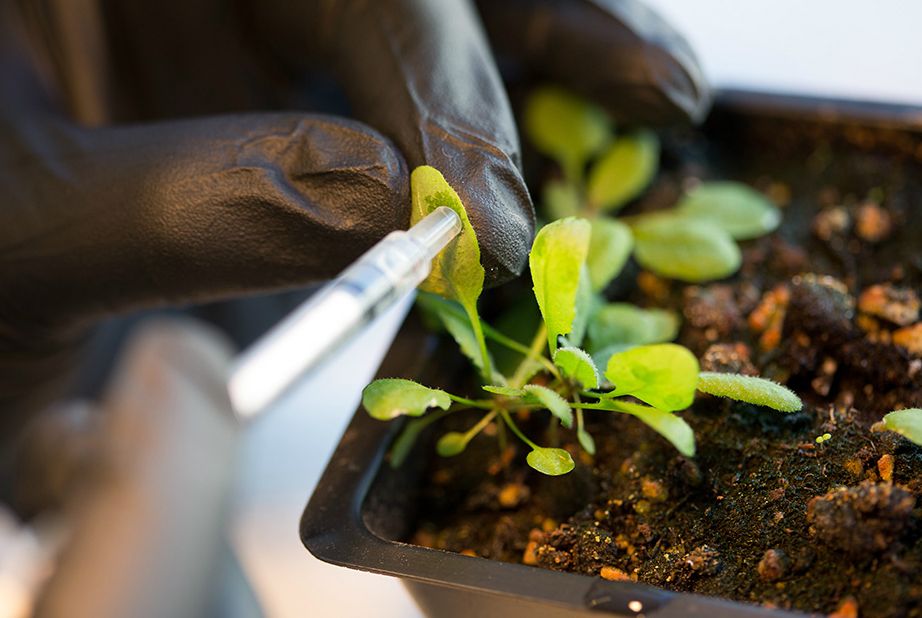Swiss agribusiness giant Syngenta and DSM, a global science-based company active in health, nutrition, and materials are partnering up to develop biological solutions for agriculture with an eye toward commercialization.
The partnership plans to jointly commercialize solutions that derive from this discovery platform while also collaborating on both pre- and post-harvest tools.
Syngenta and DSM will focus on creating bio-controls, bio-pesticides, and bio-stimulants. The products will be based on naturally-occurring microorganisms. Intended for application around the globe, products containing these beneficial microorganisms can protect crops from pests and disease, combat resistance, and enhance plant productivity and fertility.
The partnership predicts that the use of biological solutions will reach record double-digit growth during the next 10 years. They also predict that by 2030, products of this nature could represent up to 10 percent of the global crop protection market.
In 2014, the biomaterials and biochem subsector attracted $177 million in investment dollars—comprising 7 percent of total investment dollars for 2014—according to AgFunder’s 2014 Agtech Investing Report.
“Our society asks for sustainable solutions to safeguard food and nutrition security,” said DSM chief innovation officer Rob van Leen in a statement about the new partnership. “With DSM’s bright science in the micro-organism field, we can help address this global challenge together with Syngenta and its specialized know-how and market access.”
Syngenta’s head of R&D, Trish Malarkey, echoed van Leen’s sentiments: “New microbial-based solutions will contribute to meeting the challenge of producing more food from fewer resources, benefiting farmers, consumers, the environment, and society. Our collaboration with DSM brings together breakthrough science and the ability to formulate and deliver biological tools on a global scale.”
Last week Syngenta rival Monsanto announced the sale of Precision Planting, its precision seed hardware technology arm, to Deere & Company.
It’s business as usual for Syngenta after the failed $46 billion takeover bid from Monsanto over the summer led to the resignation of CEO Mike Mack two weeks ago.
Sources report that Syngenta rejected the takeover bid due to fears that the merger would raise regulatory issues that could not be properly resolved. The offer also appeared to fall short of Syngenta’s anticipated price range. The company released a statement back in August stating that Monsanto’s bid “fundamentally undervalues” Syngenta’s potential.
Had the deal gone through, the deal would have created an industry behemoth with combined sales of over $31 billion. Monsanto, which is also deeply involved in agricultural biologics products research, development, and manufacturing, has long considered Syngenta a rival. The Swedish company’s new ag-bio focused partnership with DSM may spice up the already heated competition between these two agribusiness giants.
As one of the largest agriculture companies in the market, Syngenta employs 28,000 people throughout 90 countries. The company claims that it is committed to “rescuing land from degradation, enhancing biodiversity and revitalizing rural communities.”
Focusing on solutions that enhance performance in global markets like personal care, feed, food, and bio-based materials, DSM reports that it delivers annual net sales of over $10 billion and maintains 25,000 employees. With office locations across the map, the company was recently named as the Overall Winner of the Singapore Sustainable Business Awards (SBA). DSM also won in the Supply Chain Management category and the Climate Change category.
Have news or tips? Email [email protected]
— Check AgFunder.com for agriculture investment opportunities —





